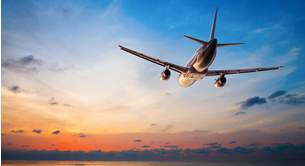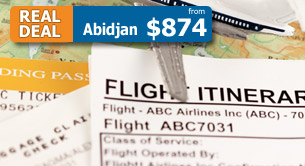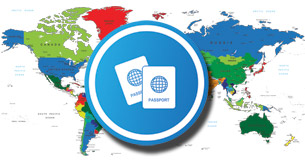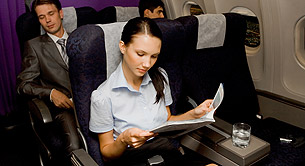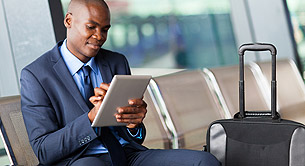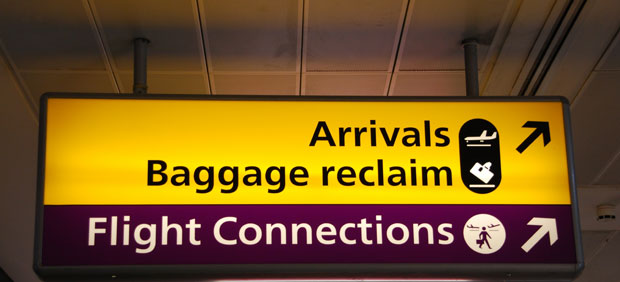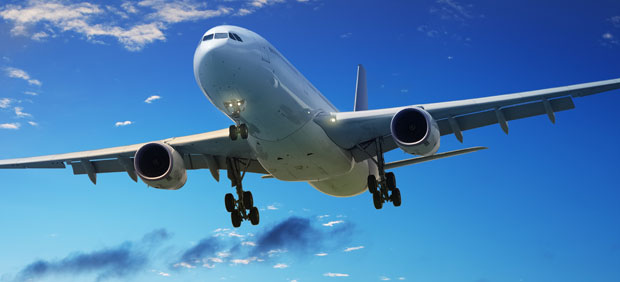
SLEDI Fareboom
8 Things Airlines Don't Want You To Know
By Fareboom Staff, pon, 23. dec, 2013We’ve got secrets straight from the front lines of the airline industry that even our most regular Fareboom travelers don’t know. From safety compromises to ridiculous fees and policies, the airline industry isn’t always 100% up front about everything that goes on behind the scenes.
Read on to discover 8 things that airlines don’t want you to know. But be warned, some of these facts might shock you.
1. Many flights don’t carry enough extra fuel.
Because the more fuel an airplane carries, the more it burns, more and more pilots have to carry just enough to get them to their destination and no further. If you hit a storm mid-air and burn up extra fuel, your plane may have to land at a different airport because there’s not enough fuel on board to get you to your destination.
2. Regional airlines don’t have the same safety requirements.
Since most airlines operate on a hub-and-spoke model, which means that major flights leave from a few major hubs and all other flights are short hops to the hubs, you’ll probably be spending a lot of time on regional aircraft, even if you don’t know it. Regional jets are smaller and typically make flights less than 2 or 3 hours. The problem is that regionals don’t have to comply with the same strict safety standards as larger aircraft. You don’t have to log as many hours to land a spot as a regional pilot, a fact that airlines don’t want you to know.
3. Times are fudged to improve airline stats.
This works two ways. First, you may arrive on-time or ahead of schedule often because airlines have manipulated the times that it takes to make the flight. A flight might take an hour but will be listed as an hour and 15 minutes just to be sure airlines have high statistics for on-time arrivals.
On the other hand, they want strong statistics for on-time departures too. That means instead of waiting for 10 extra minutes for a delayed flight that’s carrying 15 people who are supposed to be on your flight, they’ll take off on time without them. This means those passengers will have to be re-routed onto another flight, which is harder and harder as flights are continuously over-booked.
4. Your pilot is probably way too hungry and exhausted.
For domestic flights, your poor pilots and crew should only have to fly for 8 hours max in a 24-hour timeframe. However, that doesn’t account for weather delays, fueling, checking out the aircraft, baggage loading and tons more. This means that your pilot could be on duty for up to double their flight time without a single break. While they may be able to squeeze in a quick bathroom break or choke down a granola bar, they’re running on empty, which could be majorly dangerous for everyone involved.
5. Change fees don’t need to be high at all.
This is one place airlines can get away with staggering fees for flight changes, and there seems to be no end in sight as many roll up to $200 or higher per change. The reason change fees were enacted was so that airlines could maintain a base profit if they couldn’t fill the seat.
Now, according to industry analysts, over 80% of seats are filled because routes have been cut as a result of high fuel costs. Therefore, they’re already covering the costs of empty seats and don’t need to collect such a hefty fee for simply changing your seat on a flight.
6. There are cheap pockets of time to book and fly.
The number one rule of finding a good fare is to be flexible. This means leaving a few days earlier or later, taking early or late flights and searching for deals. The secret info they don’t want you to know is that the cheapest days to fly are Tuesday, Wednesday and Saturday. Friday and Sunday are off the charts in comparison.
You can also take advantage of seasonal fares, such as purchasing in the first few weeks of January for spring travel. Another run of sales typically happens in September for fall travel. Summer deals and holiday deals can still be had, but flights are generally more expensive then overall.
7. How to avoid being bumped.
Check in as early as you can. Most often, those who get involuntarily bumped are at the end of the check-in process. Plus, this protects you from getting snagged in a long line at security.
Overbooking is common and accepted, so check in at the gate at least 30 minutes early on a domestic flight or 60 minutes early on an international flight. If you do happen to get bumped, the airline has to get you onto another flight (even that of a competitor) that will get you to your destination within a certain amount of time. While you can pick up cash if you’re enduring a super-long wait, always be sure to ask for compensation like meal vouchers, frequent flyer miles or flight vouchers.
8. Planes are one of the germiest places on earth.
The Environmental Protection Agency found that in the galley kitchen and bathroom, 17% of water samples tested were contaminated by feces. That’s right, you could be drinking poo coffee. Our solution is to only go for the canned stuff and avoid coffee and tea.
In addition to the water, the air on planes can also help you get sick. Because the air filters (which are thankfully in place) dry out the air, you’re more likely to pick up a bug. You also can be infected by people up to two rows ahead or behind you, or by hacking passersby.
Conclusion
Airlines are protective about you finding out the weird, unfair and disgusting policies and environments they have, and why wouldn’t they? Any other industry would get run out of business. Knowing is half the battle. We, at Fareboom, will help you fight that battle as best we can.
Do you like being the first to know?
If you enjoy always getting the best tips, deals and insider news before everyone else then make sure to follow us on Facebook and Twitter.




